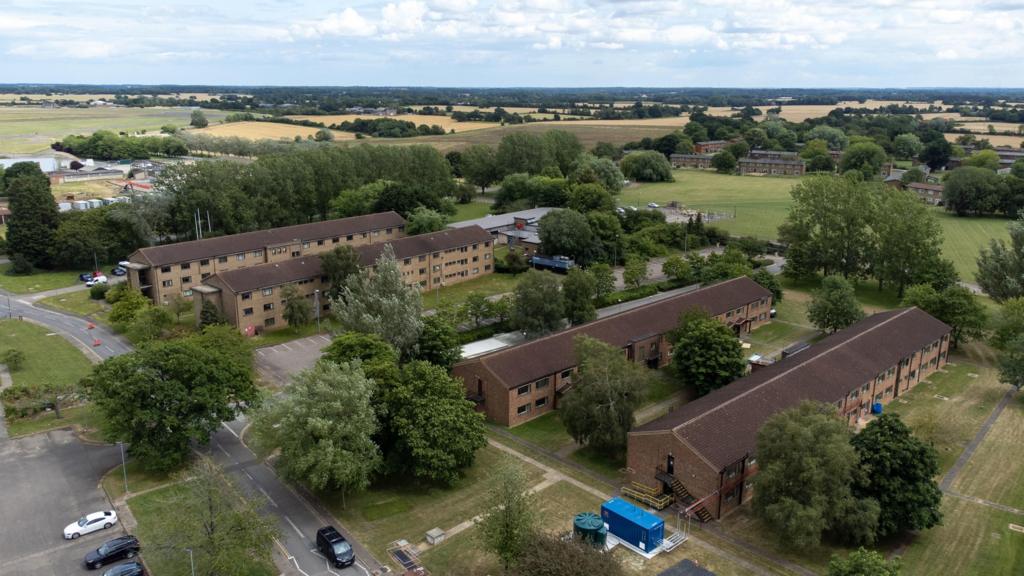The BBC has learned that the UK government plans to expand large asylum seeker sites, such as the Wethersfield air base in Essex, as part of a strategy to eliminate the use of asylum hotels.
Chancellor Rachel Reeves committed to ending the use of taxpayer-funded hotels by 2029 in her Spending Review, projecting a £1bn saving.
The Home Office aims to achieve this by relocating asylum seekers from hotels to more affordable accommodations.
Despite Sir Keir Starmer’s pledge to close the Wethersfield facility during last year’s election, the BBC understands that this site, along with another in Huddersfield, is being considered for expansion.
A Home Office spokesperson stated that the government is “making strong strides to deliver a more sustainable and cost-effective asylum accommodation system,” including ending hotel use, exploring locally-led models, and collaborating with local authorities for a “fairer, more efficient approach,” adhering to all planning permissions.
The cost of asylum hotels has surged in recent years, with accommodation contracts projected to reach £15.3bn over a decade.
While expanding existing sites may prove more economical, this move is likely to face opposition from local communities and refugee advocacy groups.
In April 2023, Home Secretary Yvette Cooper deemed Wethersfield unsustainable and poor value for taxpayers.
Conservative MP Sir James Cleverly criticized the potential expansion, stating it was “disgraceful” and disregarded local concerns, emphasizing the existing capacity limits were for the safety and security of residents and personnel at the site.
In March, the High Court ruled the previous Conservative government’s use of Wethersfield unlawful, following a case alleging “prison-like” conditions.
The former RAF base, housing asylum seekers since 2023, has a capacity of 800 but currently houses approximately 500. The Home Office contract is held by Clearsprings, whose founder recently achieved billionaire status.
The Helen Bamber Foundation has raised concerns about the negative impact on the physical and mental health of residents at the base, urging its immediate closure rather than expansion.
A pair of former student accommodation blocks in Huddersfield, acquired last year, could also see expansion. These 650-capacity buildings, constructed in 2019, remain unoccupied due to safety concerns.
Funding for any expansions would come from the Ministry of Housing, Communities and Local Government, allowing for borrowing without violating the chancellor’s spending limits.
Home Office data from March shows approximately 100,000 asylum seekers in government accommodation, with 32,000 in hotels. The government aims to end hotel use by reducing small boat crossings, expediting applications, and providing alternative accommodation.
Following the Spending Review, clarification on alternative accommodation was sought. While the government confirmed upgrading existing facilities, including extensions, it denied plans for entirely new buildings.
A senior Home Office source confirmed to the BBC that extensions to existing facilities, alongside renting existing spaces like unused student blocks, would be pursued. The £1bn saving has already been allocated, and the Home Office has a new target for additional accommodation required to achieve it.
Relocating around 14,000 asylum seekers from hotels is projected to generate the £1bn saving, a target the Home Office is confident of achieving.
The number of asylum seekers in hotels, while lower than the 2023 peak, has risen since Labour’s election win. March’s statistics do not reflect the impact of subsequent increased small boat arrivals.
This section appears unrelated to the main article and should be removed or addressed separately.

